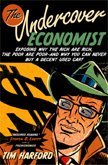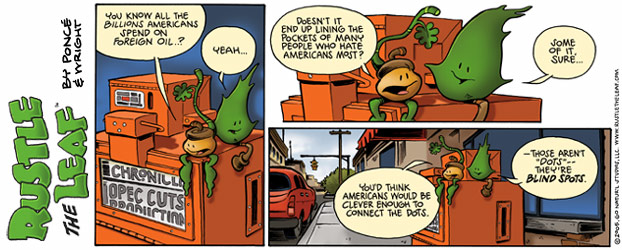NEWS: Fair for all?
 Last week Trevor McDonald's Tonight programme examined the fair trade 'boom' and asked the question - what are consumers expecting to achieve by buying fair trade? The programme suggested that we are paying too much for our fair trade products and the farmers do not receive as much as we'd expect. This is not the first time such conclusions have been drawn; the BBC's money programme ('Not So Fair Trade') last month raised questions about whether supermarkets were sufficiently open about the pricing of fair trade products. One commentator also suggested that companies such as Nestle, were 'green washing' their image by selling fair trade coffee.
Last week Trevor McDonald's Tonight programme examined the fair trade 'boom' and asked the question - what are consumers expecting to achieve by buying fair trade? The programme suggested that we are paying too much for our fair trade products and the farmers do not receive as much as we'd expect. This is not the first time such conclusions have been drawn; the BBC's money programme ('Not So Fair Trade') last month raised questions about whether supermarkets were sufficiently open about the pricing of fair trade products. One commentator also suggested that companies such as Nestle, were 'green washing' their image by selling fair trade coffee.Tim Harford in his book Undercover Economist asks who really makes money from fairtrade coffee? He weighs up the price the consumer pays versus the profits made by Costa coffee. He surmises...
"The truth is that fair trade coffee wholesalers could pay two, three or sometimes four times the market price for coffee in the developing world without adding anything noticeable to the production cost of a cappuccino. Because coffee beans make up such a small proportion of that cost customers might have concluded that the extra 10p was to cover the cost of the fair trade coffee, but they would have been wrong."
On a more positive note, my experiences of buying fair trade locally is that the prices are wholly reasonable. A cappucino made with fair trade coffee, from my local beachside cafe The Junction, is priced at £1.60 - average amongst local cafe's. I recently bought a beautiful summer tunic from Gringo, Swansea. It is fair trade and cost only £12.95. A comparable item in a department store would have been about £25. I am assuming that the cheapness of the top is due to the smaller overheads and less profit taken by Gringo. Wouldn't it be great to have a little label on clothes, similar to the new food labelling, breaking down the cost? Red box for big profit and green for fair trade - just a thought!
Ella
Al's Note: There is of course much debate of the value of Fairtrade but for me it is about Farmers getting reliable pricing more than it is about getting more money. Reliable pricing is the key to fairtrade and allows producers to plan their businesses around that stable pricing and that means their community is more stable as their local economy is more stable. They get extra money for 'social or economic development projects'. This is something unfair trade cannot offer thus throwing unlucky producers and their communities into financial turmoil. As I understand it. Siel...as the most fairtrade-savvy person I know perhaps you can add something?
Technorati tags:
cityhippy
green
lifestyle
fairtrade
coffee
ethical

































3 Comments:
I think the message could be to only buy Fairtrade goods from shops that don't make a big fuss about stocking Fairtrade.
I got a big bag of very nice coffee beans from my local health food shop for just over a fiver. I'd pay the same or more for the same amount of non-Fairtrade stuff in Whittards or a supermarket.
Understand your point Ian, its often the 'unsung heroes' - smaller shops and cafe's going fair trade that do their bit, without as you put it 'making a big fuss'.
Conversely, its also big companies with their buying power and public influence that can move the majority to purchase fair trade e.g. Marks and Spencer.
I suppose in the end, you could argue any fair trade is better, than no fair trade, as long as the product is not way too pricey. I'm sure the debate will continue...
Mrs Moo....that was stunning...for people to discount the value of Fairtrade just shows how little value they place on a few extra pennies for poor farmers. I wonder if farmers who benefit from Fairtrade have any problems with the extra cash and stability? Me thinks not!
Namaste
Al
Post a Comment
<< Home